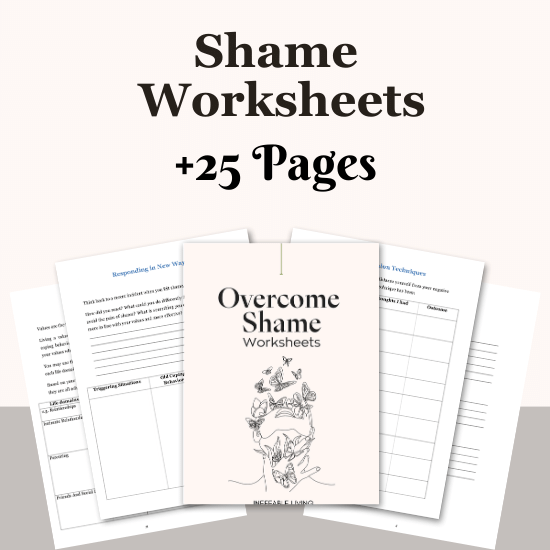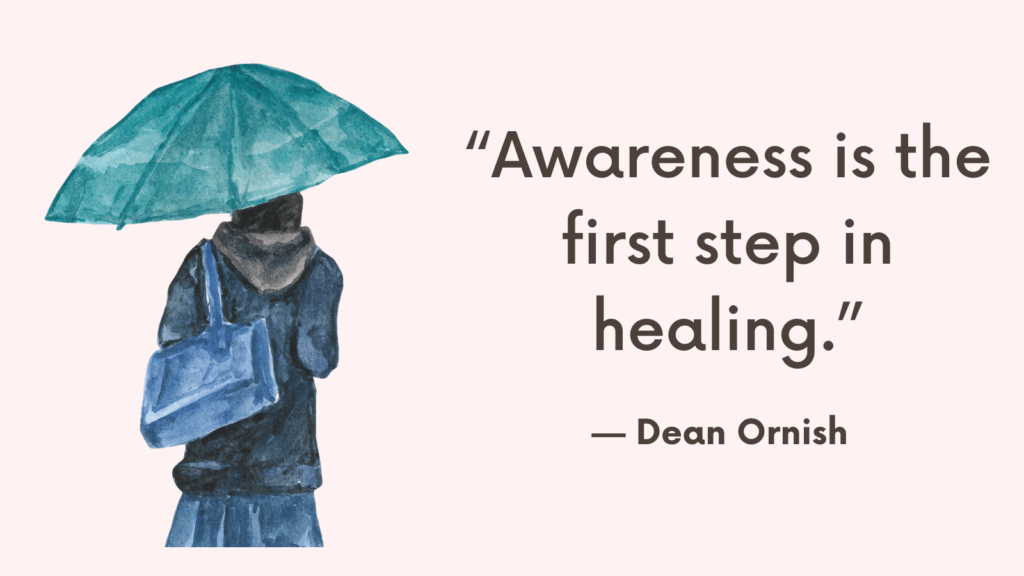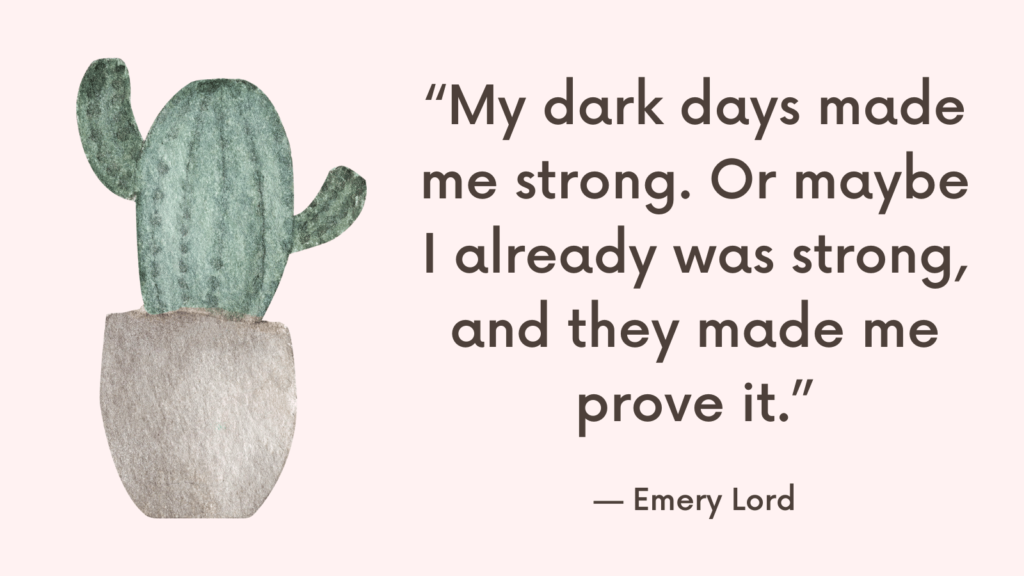In this post, you’re going to learn all about guilt and shame in recovery and how to overcome them.
What Causes Guilt And Shame In Recovery?
Guilt and shame are common emotions experienced by individuals in recovery from addiction or mental health issues.
These emotions can be triggered by a variety of factors, and understanding their causes can be an important part of the healing process.
1. Past Behaviors
One common cause of guilt and shame in recovery is past behaviors associated with addiction or mental illness.
Individuals may feel a deep sense of regret and remorse for the harm they caused to themselves or others during their struggles.
This can lead to feelings of guilt for the actions they took while under the influence or when struggling with their mental health.
2. Stigma
Another cause of guilt and shame in recovery is societal stigma surrounding addiction and mental illness.
Individuals may internalize negative societal attitudes and beliefs about these conditions, leading to feelings of shame about their struggles.
They may fear judgment or rejection from others, which can contribute to a sense of inadequacy and unworthiness.
3. Impact on Others
Many individuals in recovery also experience guilt and shame related to the impact of their behavior on their loved ones.
They may feel remorse for the pain and suffering they caused their family and friends, leading to a deep sense of guilt and shame.
This can be particularly challenging to navigate as individuals work to repair relationships and rebuild trust.
Related: Best 20 Healing Shame Exercises To Break Free From Toxic Shame
4. Relapse
Experiencing a relapse can trigger intense feelings of guilt and shame for individuals in recovery.
They may feel as though they have failed themselves and others, leading to a sense of inadequacy and self-blame.
Overcoming these emotions and learning from the relapse is crucial for maintaining motivation and resilience in recovery.
5. Internalized Beliefs
Internalized beliefs about personal worth and capability can also contribute to guilt and shame in recovery.
Individuals may hold deep-seated beliefs that they are fundamentally flawed or unworthy, leading to pervasive feelings of shame and self-criticism.
These beliefs are often rooted in past experiences and upbringing, and they can significantly impact one’s self-perception.
Related: Toxic Shame Quiz
Guilt vs. Shame
Guilt is often related to specific actions or behaviors that a person considers to be wrong or harmful.
It is focused on one’s actions and their consequences, and it usually arises from a sense of responsibility for causing harm or violating one’s own moral code.
Guilt can serve as a motivational emotion, prompting individuals to make amends or change their behavior to align with their values.
Shame, on the other hand, is a more pervasive and deeply rooted emotion. It relates to the individual’s sense of self and identity, rather than specific actions.
Shame often stems from internalized beliefs about one’s worthiness, and it can lead to feelings of inadequacy, unworthiness, or being fundamentally flawed as a person.
Unlike guilt, which focuses on what one has done, shame focuses on who one believes they are.
While guilt can prompt individuals to take responsibility for their actions and make positive changes, shame can be far more corrosive, leading to self-criticism, low self-esteem, and a reluctance to seek help or support.
Related: Top 17 Shame Journal Prompts (+FREE Worksheets)
Guilt And Shame In Recovery: Top 10 Tips to Overcome Them
1. Practice Self-Compassion:
Recognize that struggling with guilt and shame is a common experience in recovery.
Be kind and understanding to yourself, as you would to a friend facing similar challenges.
2. Understand Your Triggers:
Identify specific situations, thoughts, or memories that trigger feelings of guilt and shame.
Understanding your triggers can help you develop coping strategies to manage these emotions.
3. Challenge Negative Thoughts:
Use cognitive-behavioral techniques to challenge negative thought patterns associated with guilt and shame.
Replace self-critical thoughts with more balanced and compassionate perspectives.
Related: Negative Core Beliefs List (& 8 Tips On How To Challenge Them)
4. Seek Support:
Connect with a therapist, counselor, or support group to discuss your feelings of guilt and shame in a safe and non-judgmental environment.
Sharing your experiences with others who understand can help alleviate these emotions.
5. Practice Mindfulness:
Engage in mindfulness meditation or other mindfulness practices to increase awareness of the present moment and reduce rumination on past mistakes.
Mindfulness can help you develop a more accepting and non-judgmental attitude toward your experiences.
Related: Best 6 Mindfulness Exercises For Beginners (+FREE Resources)
6. Address Past Behaviors:
Take proactive steps to make amends for past behaviors that contribute to feelings of guilt and shame, where appropriate and without causing harm to yourself or others.
Acknowledge the impact of your actions and work toward personal growth and accountability.
7. Focus on Personal Growth:
Channel your energy into positive activities that promote personal growth and well-being.
Set achievable goals and celebrate your progress, focusing on the present and future rather than dwelling on the past.
8. Learn from Mistakes:
Embrace the concept of learning from mistakes and using them as opportunities for growth.
Reflect on how past experiences can inform your recovery journey and empower you to make healthier choices.
9. Cultivate Forgiveness:
Practice self-forgiveness and recognize that everyone makes mistakes.
Work toward letting go of self-blame and embracing a sense of forgiveness for yourself and others involved in your journey.
Related: Forgiving Someone Who Isn’t Sorry: 9-Step Guide To Free Yourself From The Past
10. Celebrate Progress:
Acknowledge and celebrate your achievements, no matter how small they may seem.
Recognize the courage and strength it takes to confront feelings of guilt and shame in recovery.

Conclusion
It’s important to recognize that experiencing guilt and shame in recovery is a natural part of the healing process.
However, addressing these emotions is crucial for maintaining mental well-being and sustaining recovery.
By understanding the underlying causes of guilt and shame, individuals in recovery can begin to challenge negative thought patterns and develop healthier coping mechanisms.
Through self-compassion, forgiveness, and self-acceptance, it is possible to navigate these difficult emotions and cultivate a greater sense of resilience and well-being in recovery.



